Sponsored by Murakami City
Kibori Tsuishu: The Lacquerware Art of Murakami
Murakami, in Niigata prefecture, is a small city full of local arts and crafts. Kibori Tsuishu, wood engravings coated in lacquer, are one of these Murakami specialties. Generally speaking, Japanese craftsmen cover objects with multiple layers of lacquer and then engrave their motifs in them. In Murakami, they first engrave the patterns in the wood and then apply the lacquer, allowing artisans to apply shades that are different from those of traditional lacquer technical. This traditional and regional lacquerware-making process has more than two hundred years of history.
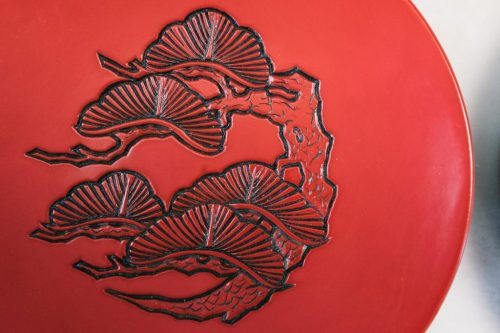
Urushi Ohtaki: A shop, a Museum and an Atelier
Among Murakami’s many lacquerware shops, Urushi Ohtaki stands part. With its upscale ground-floor show, visitors can admire a vast collection of Kibori Tsuishu creations and discover the diversity of Murakami lacquerware.
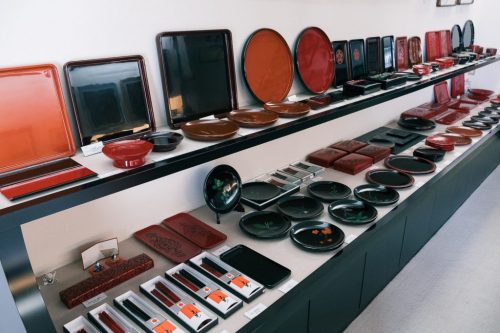
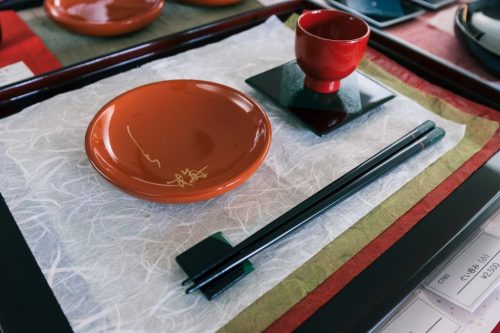
With or without engravings, black or red, coated in unconventional colors, plain or decorated with delicate patterns…in all their diversity, the creations in this workshop are beautiful. And even though all the lacquerware in this shop is hand-made, the sale prices are very affordable.
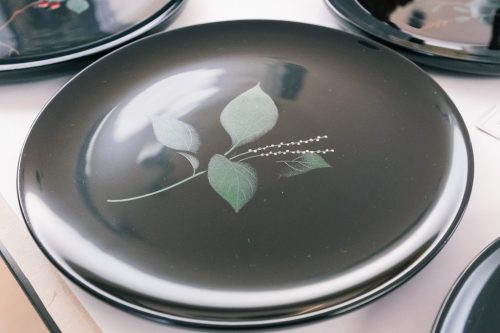
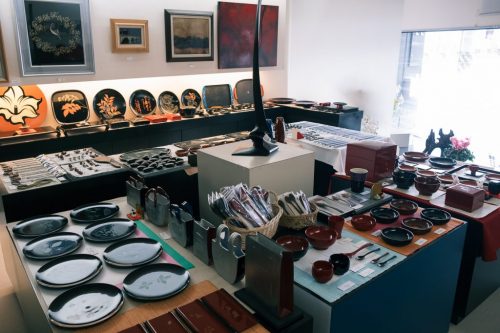
In one corner, a small staircase leads to the second floor of the shop. This is a workshop where the site manager teaches visitors, but it is also a small museum that hosts modern works of art. It is interesting to juxtapose this traditional craftsmanship with modern artwork. The painted gestures found in lacquerware, maintained for centuries, can be found among these creations by modern artists as they expand the boundaries of Japanese art.

Try Lacquer Painting
For just 1,200 yen, visitors can experience a one-hour lacquerware course and create their own lacquer chopsticks. I knew very little about lacquer when I arrived at the workshop, and wasn’t sure what to expect. The lacquer is made from sap, which is harvested from trees like latex. The sap is purified and colored, then it applied to wood or bamboo. The lacquer layers are extremely resistant, but contribute a particular aesthetic and colorful brilliance.
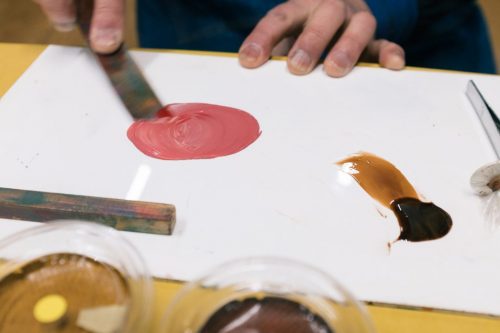
When you apply lacquer to your chopsticks you will first have to decide on a pattern. Painter’s tape is used to create the boundaries of your pattern.
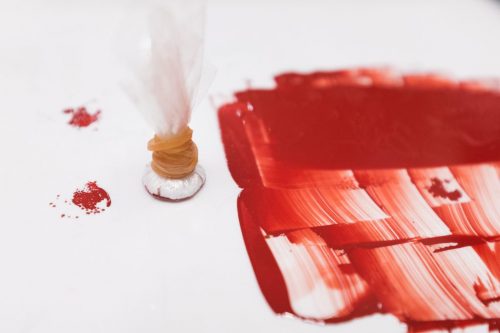
The site manager teaches me to choose among the different colors of lacquer paint. If none of the colors suit you, it is possible to mix the colors to obtain the prefect customized shade. Once you settled on your color, spread the lacquer on the worktop with a spatula. The lacquer is thick and sticky, a sensation that may seem antithetical to the act of painting. To apply the lacquer on the sticks you will use a small buffer and gently tap the stick.
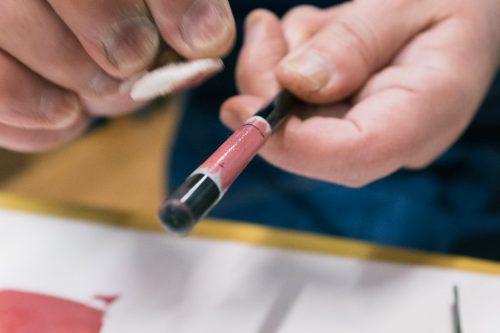
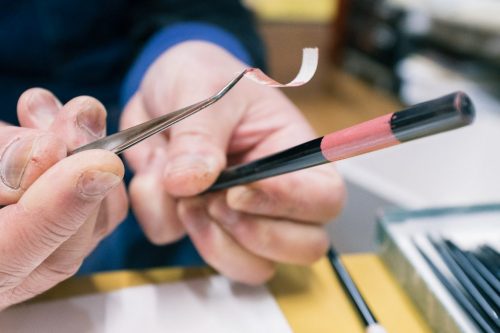
It is a job that requires patience and concentration if you want a regular result. I found the experience engaging and enjoyable. When the patterns is completely covered, remove the tape with tweezers. The opaque and brilliant color of the lacquer contrasts with the black of the chopstick base. My final result was not defects-free, but I was proud of the results. It was a privilege to have been guided with patience and kindness by my host who taught me the process behind making lacquered objects!
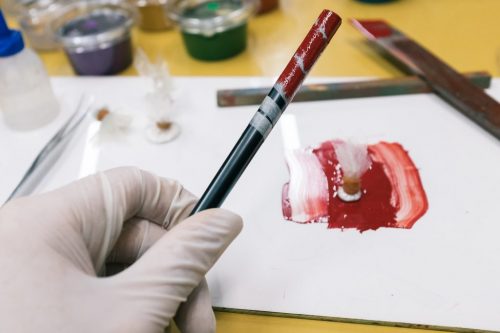
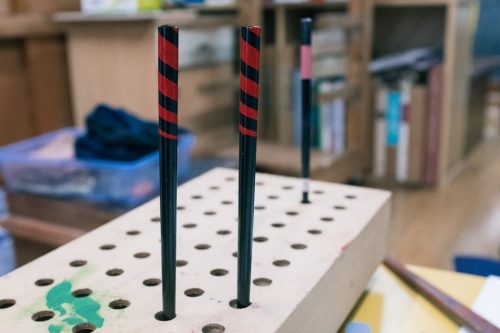
Receive Your Work of Art
Lacquerware requires a extended drying time and in very particular conditions. My chopsticks stayed on a drying rack for 48 hours, at a humidity rate of approximately 100%. Since I was returning to Tokyo that evening, it was not possible for me to go home with my chopsticks. But my host offered to send them to home by mail as soon as they were ready. If you are traveling in Japan and are staying in a hotel for a while, you can have your lacquerware creation sent to the hotel. If not, it’s possible to have them sent abroad for an additional fee (do not worry, the chopsticks are not heavy).
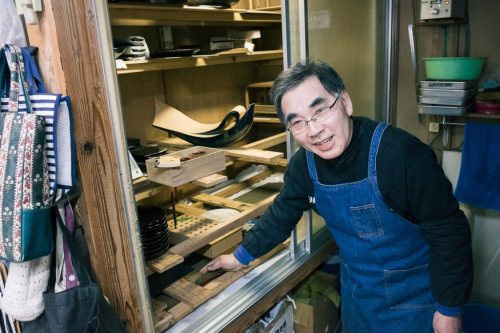
A few days later I found my chopsticks in my mailbox. Neatly wrapped in bubble wrap and accompanied by a very nice letter from the craftsman who had taught me the art of lacquerware. By passing my fingers on my chopsticks, I realized that this single layer of lacquer was solid. No doubt they will last a long time. I cannot wait to use this unique souvenir!
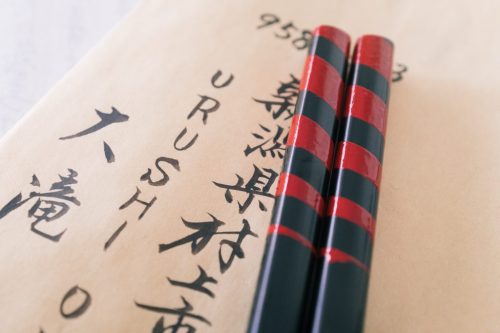
[cft format=0]
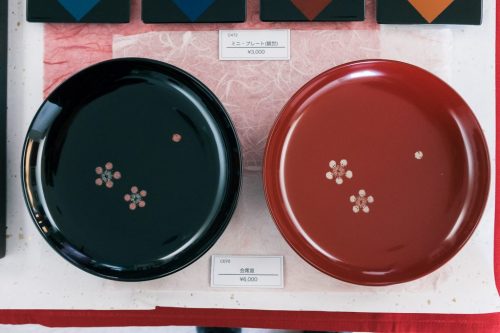
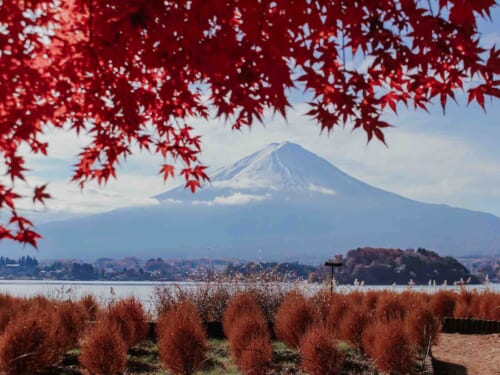
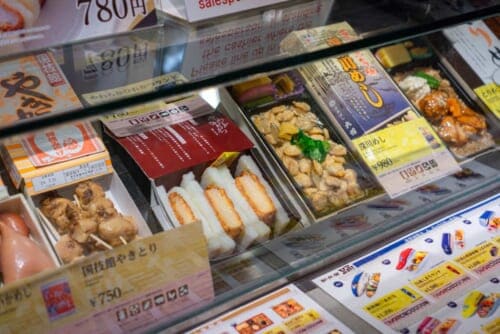
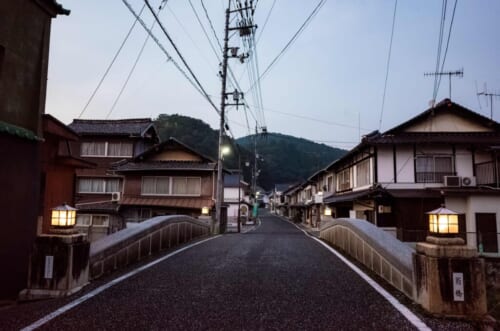
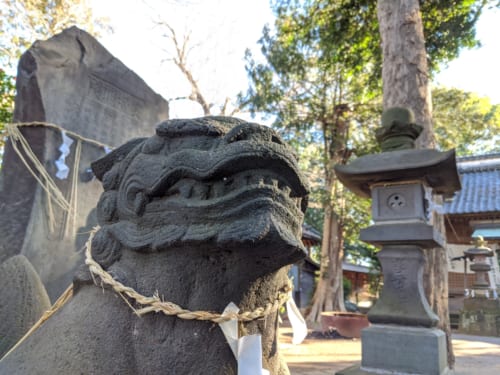
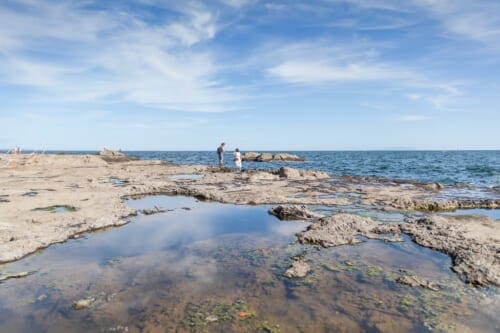
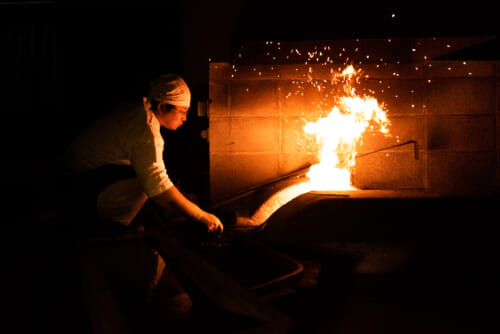



No Comments yet!